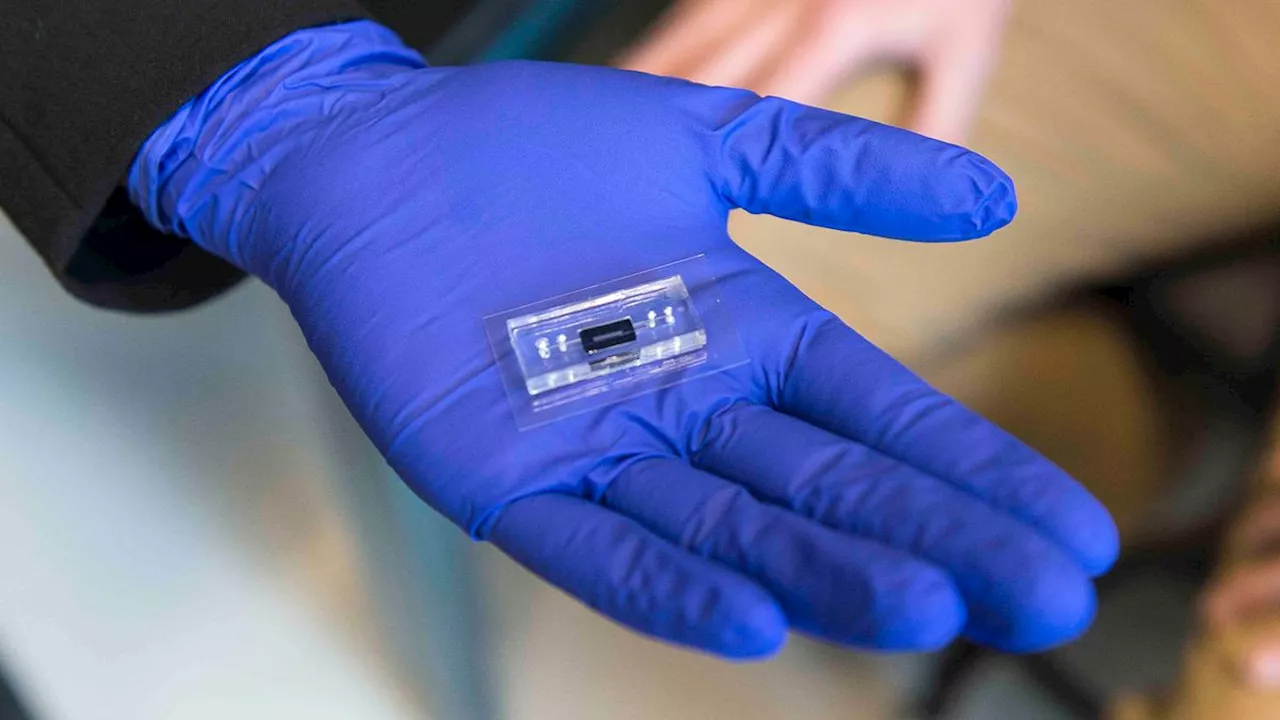Keumars is the technology editor at Live Science. He has written for a variety of publications including ITPro, The Week Digital, ComputerActive, The Independent, The Observer, Metro and TechRadar Pro. He has worked as a technology journalist for more than five years, having previously held the role of features editor with ITPro.
A new approach to computing could double the processing speed of devices like phones or laptops without needing to replace any of the existing components.
Information moves from one unit to the next depending on which is most efficient at handling a particular region of code in a program. This creates a bottleneck, as one processor needs to finish its job before handing over a new task to the next processor in line. SHMT utilizes processing units simultaneously for the same code region — rather than waiting for processors to work on different regions of the code in a sequence based on which component is best for a particular workload.
"You don't have to add new processors because you already have them," lead author Hung-Wei Tseng, associate professor of electrical and computer engineering at University of California, Riverside, said in a statement.
United Kingdom Latest News, United Kingdom Headlines
Similar News:You can also read news stories similar to this one that we have collected from other news sources.
 AI singularity may come in 2027 with artificial 'super intelligence' sooner than we think, says top scientistKeumars is the technology editor at Live Science. He has written for a variety of publications including ITPro, The Week Digital, ComputerActive, The Independent, The Observer, Metro and TechRadar Pro. He has worked as a technology journalist for more than five years, having previously held the role of features editor with ITPro.
AI singularity may come in 2027 with artificial 'super intelligence' sooner than we think, says top scientistKeumars is the technology editor at Live Science. He has written for a variety of publications including ITPro, The Week Digital, ComputerActive, The Independent, The Observer, Metro and TechRadar Pro. He has worked as a technology journalist for more than five years, having previously held the role of features editor with ITPro.
Read more »
 New DNA-infused computer chip can perform calculations and make future AI models far more efficientKeumars is the technology editor at Live Science. He has written for a variety of publications including ITPro, The Week Digital, ComputerActive, The Independent, The Observer, Metro and TechRadar Pro. He has worked as a technology journalist for more than five years, having previously held the role of features editor with ITPro.
New DNA-infused computer chip can perform calculations and make future AI models far more efficientKeumars is the technology editor at Live Science. He has written for a variety of publications including ITPro, The Week Digital, ComputerActive, The Independent, The Observer, Metro and TechRadar Pro. He has worked as a technology journalist for more than five years, having previously held the role of features editor with ITPro.
Read more »
 AI drone that could hunt and kill people built in just hours by scientist 'for a game'Keumars is the technology editor at Live Science. He has written for a variety of publications including ITPro, The Week Digital, ComputerActive, The Independent, The Observer, Metro and TechRadar Pro. He has worked as a technology journalist for more than five years, having previously held the role of features editor with ITPro.
AI drone that could hunt and kill people built in just hours by scientist 'for a game'Keumars is the technology editor at Live Science. He has written for a variety of publications including ITPro, The Week Digital, ComputerActive, The Independent, The Observer, Metro and TechRadar Pro. He has worked as a technology journalist for more than five years, having previously held the role of features editor with ITPro.
Read more »
 Best laptops for astronomers 2024: Link up telescopes and edit astrophotographsKeumars is the technology editor at sister site Live Science. He has written for a variety of publications including ITPro, The Week Digital, ComputerActive and TechRadar Pro. He has worked as a technology journalist for more than five years, having previously held the role of features editor with ITPro.
Best laptops for astronomers 2024: Link up telescopes and edit astrophotographsKeumars is the technology editor at sister site Live Science. He has written for a variety of publications including ITPro, The Week Digital, ComputerActive and TechRadar Pro. He has worked as a technology journalist for more than five years, having previously held the role of features editor with ITPro.
Read more »
 World's largest computer chip WSE-3 will power massive AI supercomputer 8 times faster than the current record-holderKeumars is the technology editor at Live Science. He has written for a variety of publications including ITPro, The Week Digital, ComputerActive, The Independent, The Observer, Metro and TechRadar Pro. He has worked as a technology journalist for more than five years, having previously held the role of features editor with ITPro.
World's largest computer chip WSE-3 will power massive AI supercomputer 8 times faster than the current record-holderKeumars is the technology editor at Live Science. He has written for a variety of publications including ITPro, The Week Digital, ComputerActive, The Independent, The Observer, Metro and TechRadar Pro. He has worked as a technology journalist for more than five years, having previously held the role of features editor with ITPro.
Read more »
 Watch a 'robot dog' scramble through a basic parkour course with the help of AIKeumars is the technology editor at Live Science. He has written for a variety of publications including ITPro, The Week Digital, ComputerActive, The Independent, The Observer, Metro and TechRadar Pro. He has worked as a technology journalist for more than five years, having previously held the role of features editor with ITPro.
Watch a 'robot dog' scramble through a basic parkour course with the help of AIKeumars is the technology editor at Live Science. He has written for a variety of publications including ITPro, The Week Digital, ComputerActive, The Independent, The Observer, Metro and TechRadar Pro. He has worked as a technology journalist for more than five years, having previously held the role of features editor with ITPro.
Read more »
